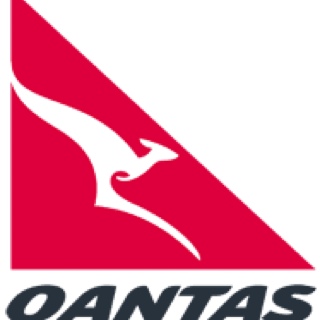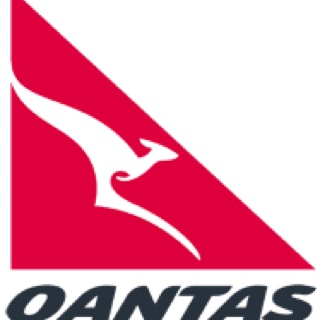Information
-
Audit Number
-
Audit Title
-
Department
-
Workshop
-
Conducted on
-
Auditor/s
- Alex Levoshko
- Arnold Snape
- Brian Ward
- Cameron Kirby
- Chris Dullard
- Colin Hester
- Daniel Gaffney
- David Mangan
- David Rowley
- Derek Smith
- Mark Hall
- Sandro Di Matteo
- Stephen Burton
- Steven Higgs
- Stewart Hitchen
-
Regulator/s
- CASA
- EASA
- FAA
-
Rating
- B1 - Engines
- B3 - APU
- C1 - Air Conditioning
- C2 - Autoflight
- C3 - Comms & Navigation
- C4 - Doors
- C5 - Electrical
- C6 - Equipment
- C7 - Engine - APU
- C8 - Flight Controls
- C9 - Fuel
- C12 - Hydraulic
- C13 - Instruments
- C14 - Landing Gear
- C15 - Oxygen
- C17 - Pneumatic
- C18 - Protection Ice/Rain/Fire
- C19 - Windows
- C20 - Structural Repairs
- D1 - NDT
- D2 - Welding
- D3 - Structural Sheet Metal/Composite
- D3 - Plating
- LA - Limited Accessory - FAA
Regulatory Approval
-
AUDITORS NOTE: The checklist comments must contain sufficient information so that anyone reading it will clearly understand why the question received a compliant or non-compliant answer.
-
1. Part Description
-
2. Part Number
-
3. Serial Number
-
4. Maintenix Barcode
-
5. Is the product or process being audited included in (As applicable per NAA being audited):
-
a. CASA Capability Listing for Products or Part 145 Certificate for Processes - CASA MOE 1.8.1, 6.5
-
b. EASA Capability Listing for Products or Part 145 Certificate for Processes - EASA MOE 1.8
-
c. FAA Capability Listing for Products or Part 145 Certificate for Processes - FAA 145 RSM/QCM 2.5
-
6. Is the facility where the product or process being audited included in:
-
a. CASA Part 145 MOE - 1.8.1 & 6.5
-
b. EASA Part 145 MOE - 1.8
-
c. FAA Part 145 Quality Control Manual / Repair Station Manual - 2.5
Process Approval
-
7. Check the Work Package maintenance instructions are traceable back to the Customer Purchase Order and reflects the customer requirement i.e; Workscope, Modification/Service Bulletins etc. <br>(CASA 2.27.4, EASA 2.28, FAA 3.8)
-
8. Is the work environment in compliance with the requirements detailed in the CMM and suitable for the planned work. (CASA 1.7, EASA 1.8, FAA 2.5)
-
9. Is approved data (CMM, SPM, etc) available and current for the product or process being audited? Record CMM Chapter, Revision and Date. (CASA, EASA, FAA, 2.8)
-
10. Are staff aware that QF generated 'Green' pages in CMM's are not permitted for use on EASA and / or FAA customer components. (EASA 2.8, FAA 2.8)
-
11. Preliminary Inspection & Hidden Damage Inspection
-
a. Is a preliminary inspection conducted before work commences to identify damage?
-
b. Is there a process to conduct a "Hidden Damage" inspection if the preliminary inspections identifies damage?
-
12. Are there any Local Area Procedures (LAP's) applicable for the product or process being audited? If so, are they available and current. (CASA, EASA, FAA 2.8)<br>Record LAP(s), Revision and Date.
-
13. Ensure that tooling, fixtures and test equipment specified in the approved data are available, identified, controlled in the eTMS system and where applicable the equipment displays a current calibration label. <br>(CASA 2.5, EASA 2.4, FAA 2.6)
-
14. Check processes are in place for the approval of any alternate tooling being used in lieu of OEM specified tooling. (CASA 1.7, EASA 1.8, FAA 2.5)
-
15. Ensure that all calibrated tool used is in eTMS and recorded in MXI to allow 'Tool to Task' traceability. (CASA 1.7, EASA 1.8, FAA 2.5)
-
16. Ensure any 'Aids to Production' suitably identified and registered. (CASA, EASA 2.4, FAA 2.6)
-
17. Check part numbers of the parts replaced or software revisions align with the affectivity of the applicable approved data. (CASA 2.12, EASA 2.2, FAA 3.5)
-
18. Sample parts that are replaced and do traceability check to the originating Authorised Release Certificate or CofC (Standard parts). (CASA 2.3, EASA 2.2, FAA 2.5)
-
19. Sample parts that are replaced to ensure that if ‘PMA’ parts installed, customer approval has been granted. (CASA 2.3, EASA 2.2, FAA 2.5)
-
20. Check new parts and products packaging/storage requirements are being complied with, including any special storage requirements and shelf life control. (CASA, EASA 2.3, FAA 2.7)
-
21. Inspect any serviceable parts removed to ensure they are correctly stored and blanked to prevent damage and deterioration. (CASA, EASA 2.3, FAA 2.7)
-
22. Check specification materials detailed in the approved data are available with correct storage and shelf life controls. If alternate materials used check correct approval process are followed (CASA, EASA 2.3, FAA 2.7)
-
23. Check all the Parts, Materials and Consumable Products used during maintenance have been recorded in MXI (eg P/No, S/No, GRN) ( CASA 2.12, EASA 2.2, FAA 3.5)
-
24. Sample conformance with maintenance instructions i.e; Cleaning, Disassembly, Testing, Repairs Software revisions, Inspection criteria, NDT method/standard etc. (CASA 1.7, EASA 1.8, FAA 2.5)
Certifying Staff
-
25. Check the certifying staff is working within the scope of their maintenance authorisation verify staff awareness and access. (CASA 3.5, EASA 1.6 & 3.7, FAA 2.4)
-
26. Check that training records are available up to date and support the scope of the certifier’s authorisation. (CASA 3.5.2 & 5.4, EASA 1.6 & 3.5, FAA 2.4)
Certification of Maintenance
-
27. Check completed stages of maintenance are supported with progressive certification on Mxi or hard copy documentation including; NDT Reports, Tool to Task and Modifications etc. (CASA 2.12 & 2.25, EASA 2.13 & 2.26, FAA 2.18)
-
28. If Modifications have been implemented, have they been approved by the customer and have they been recorded on the Serviceable Label and ARC. (CASA 2.11, EASA 2.12, FAA 2.8)
-
29. If 'FITCOM' parts are installed, has the customer approved the installation, has the part been manufactured IAW approved data, correctly identified and recorded on the ARC. (CASA 2.11, EASA 2.12, FAA 2.8)
-
30. (As applicable per NAA being audited) Authorised Release Certificate completed correctly. (CASA 1.10, EASA 2.9, FAA 3.14)
Packaging
-
31. Is the Component correctly packaged for transport/storage as per the CMM. (CASA, EASA 2.3, FAA 2.7)
Reporting
-
32. Check the awareness of the defect reporting system (QF Form 500). (CASA 3.1, EASA 2.18, FAA 2.17 & 3.19)
-
33. Additional Information
-
34. Record AQD Findings for non compliances/observations and record numbers against the checklist item.
-
Quality & Safety 145 Product Audit Checklist (Rev 1/Mar14)








